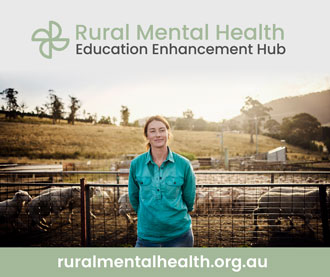Mental health placements
The importance for health students to gain practical experience in the mental health sector is increasingly essential. Since early 2022, we have worked with industry and university staff to establish multidisciplinary mental health placement opportunities.
The Community Mental Health Experience Project invites students from nursing, paramedicine and social work to complete their placement at our partner organisation, LikeMind – located in Wagga Wagga or Orange, New South Wales, with an onsite educator who provides dedicated supervision to the project.
Benefits
Throughout 2023, the Community Mental Health Experience Program has supported over 35 students who report an increase from 78% to 89% in confidence working with people with a lived experience of mental illness and a 68% to 84% increase in confidence in delivering information about mental health to consumers.
Additional benefits to students include:
- Practice mental health assessment skills (i.e. intake assessments, risk assessments, mental state examinations).
- Develop an awareness of the stepped recovery model and important mental health related referral pathways.
- Gain insight into various mental health diagnoses, linking theoretical knowledge with real-life experience.
- Practice self-care and critical reflection skills.
- Develop an understanding of the role of other health disciplines.
You can read more about the Community Mental Health Experience design and outcomes in our evaluation report.
Placement structure
Placement allocations are via the relevant discipline workplace learning team. A small number of students will be allocated to each placement round to ensure a high-quality learning experience.
Students are provided with an onsite orientation on the first day to ensure they are adequately prepared and meet mandatory requirements for working with people seeking help for their mental health. The dedicated educator provides ongoing support by facilitating various learning opportunities, including seminars, clinical debriefs, and community program and service visits.

Case study
Students participate in a range of interprofessional learning activities supported by a dedicated educator. Examples include:
- Students met with clients who had recently been hospitalised and discussed what it’s like to interact with emergency services during a period of acute mental illness. Students gained practical tips that will assist their practice after graduation.
- Students spent time in an inpatient unit and visited emergency mental health workers. This assisted students in understanding the process of supporting a person through the assessment and treatment phase of their care and how various professions work together.
- Students practised and then performed intake assessments with new clients to LikeMind with the support of their educator. The task was challenging and greatly beneficial to their clinical skills.
10/10 placement!!! The staff were incredibly welcoming and worked in such a great team and consistently looked out for one another. Incredible workplace to complete your placement or potential future career!!
The exposure to the wide variety of services and pathways available for mental health was highly beneficial.
…I have been so surprised and have thoroughly enjoyed being here and learnt so much about the importance of mental health, the services that are available to the community, and different techniques that I can implement in my future paramedic practice as well as my personal life.
Rural Mental Health Education Enhancement Hub
The Hub is the ultimate online mental health education resource for rural health students and health professionals.
Whether studying mental health, undertaking placements, or seeking career guidance, this resource created by Three Rivers DRH and the Murrumbidgee Primary Health Network will help you excel in your rural health career and make a meaningful impact in the mental health community.
Free online learning modules
We offer free online modules to get you ready for your placement.

